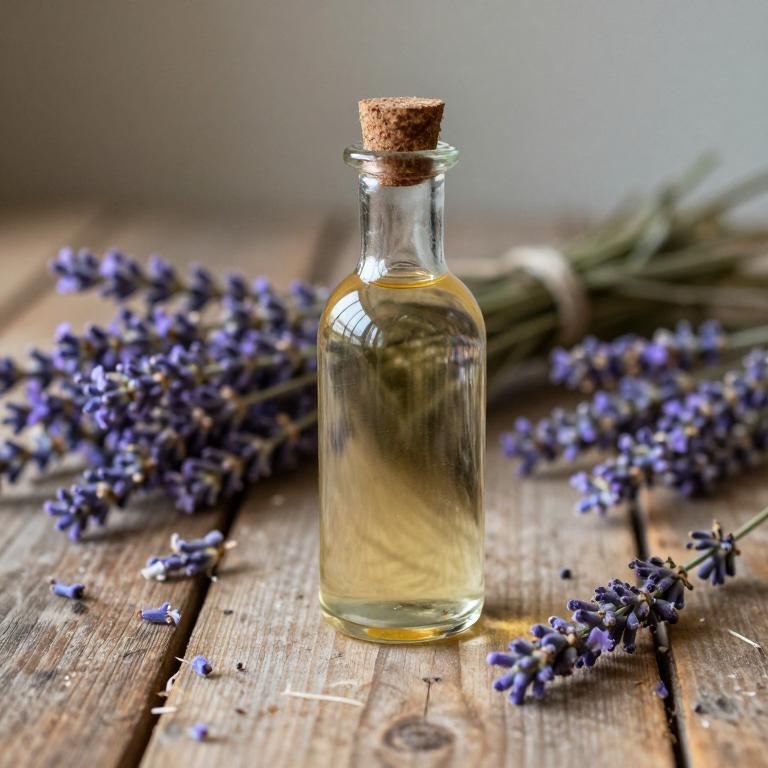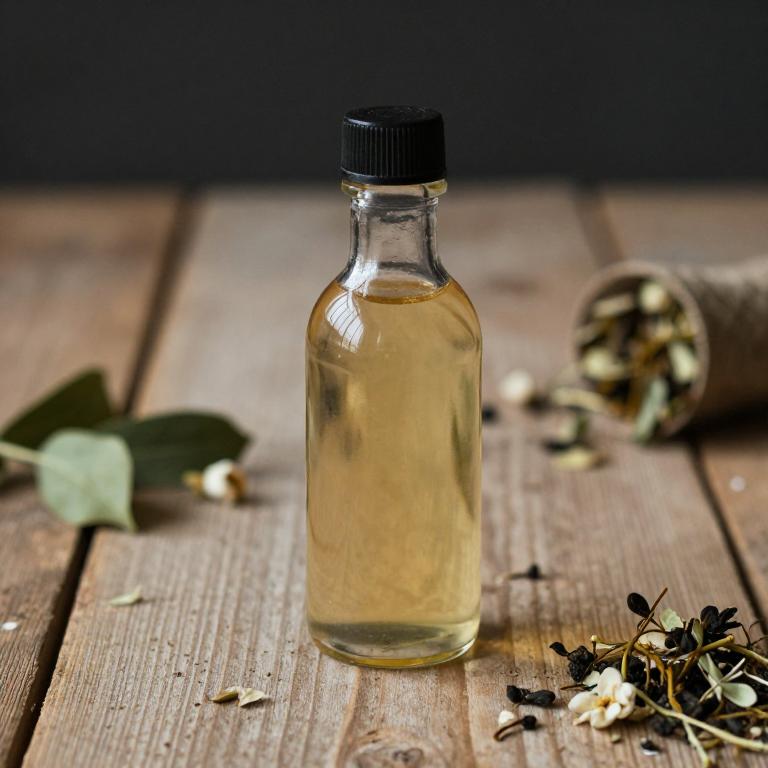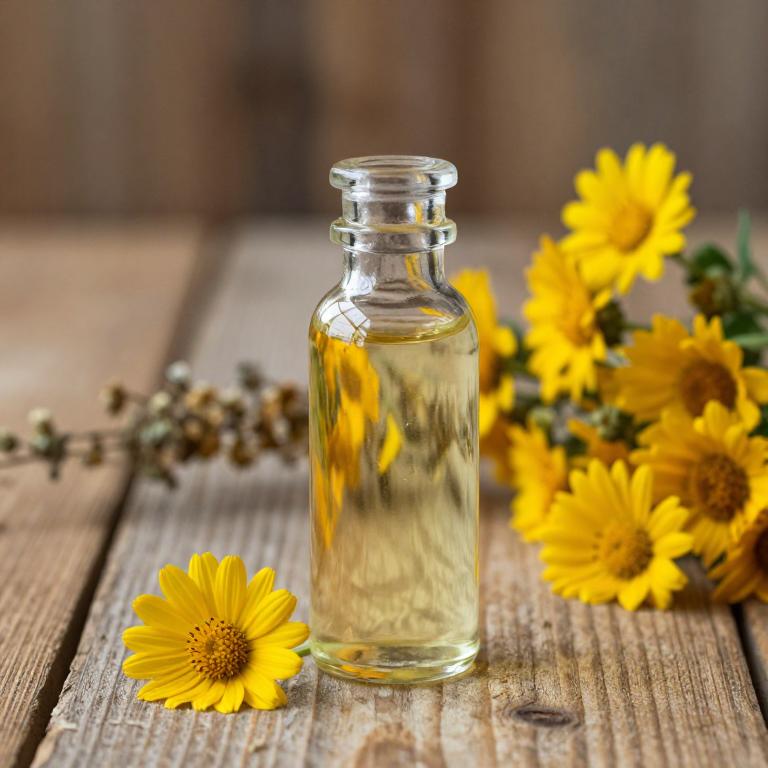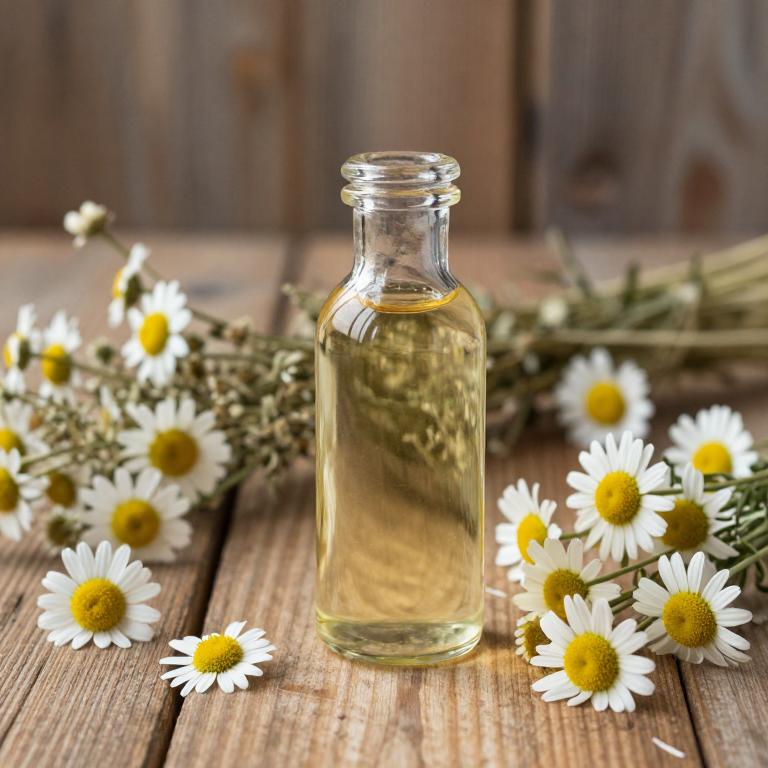10 Best Herbal Syrups For Eczema

Herbal syrups for eczema are natural remedies that combine traditional herbal ingredients with a sweet, palatable base to make them easier to consume, especially for children.
These syrups often contain anti-inflammatory and soothing herbs such as chamomile, licorice root, and calendula, which are believed to help reduce skin irritation and promote healing. While they are not a substitute for medical treatment, they can complement conventional therapies by providing additional relief from eczema symptoms. However, it is important to consult a healthcare provider before using herbal syrups, as some ingredients may interact with medications or cause allergic reactions.
Overall, herbal syrups offer a gentle, alternative approach to managing eczema, emphasizing holistic and natural care.
Table of Contents
- 1. St. john's wort (Hypericum perforatum)
- 2. Aloe vera (Aloe barbadensis)
- 3. Stinging nettle (Urtica dioica)
- 4. English lavender (Lavandula angustifolia)
- 5. Camellia (Camellia sinensis)
- 6. Echinacea (Echinacea purpurea)
- 7. Marigold (Calendula officinalis)
- 8. Chamomile (Matricaria chamomilla)
- 9. Field horsetail (Equisetum arvense)
- 10. Dog rose (Rosa canina)
1. St. john's wort (Hypericum perforatum)

Hypericum perforatum, commonly known as St. John's Wort, has been traditionally used in herbal medicine for its potential anti-inflammatory and antiseptic properties.
While it is more widely recognized for its use in treating mild depression, some studies suggest that its active compounds, such as hyperforin and hypericin, may help reduce skin inflammation associated with eczema. Herbal syrups containing Hypericum perforatum are often prepared by combining the dried plant with honey or other natural sweeteners, making them easier to consume and potentially more palatable for those with sensitive stomachs. However, it is important to note that the effectiveness of Hypericum perforatum for eczema can vary, and it should be used under the guidance of a healthcare professional, as it may interact with certain medications.
Overall, while it may offer some relief for eczema symptoms, more research is needed to fully understand its efficacy and safety in this context.
2. Aloe vera (Aloe barbadensis)

Aloe barbadensis, commonly known as aloe vera, has been traditionally used for its soothing and healing properties, and its herbal syrups are increasingly being explored for their potential benefits in managing eczema.
These syrups are typically made by extracting the gel from the aloe leaf and combining it with natural sweeteners and other herbal ingredients to create a palatable formulation. The anti-inflammatory and antimicrobial properties of aloe vera may help reduce skin irritation and redness associated with eczema. Some studies suggest that aloe-based syrups can enhance skin hydration and promote faster healing of eczema-affected areas.
However, it is important to consult a healthcare provider before using aloe syrups, as individual responses can vary and potential allergic reactions or interactions with other medications may occur.
3. Stinging nettle (Urtica dioica)

Urtica dioica, commonly known as stinging nettle, has been traditionally used in herbal medicine for its potential anti-inflammatory and skin-soothing properties.
Herbal syrups made from Urtica dioica are often prepared by drying and extracting the leaves, which are then combined with honey or other natural sweeteners to create a palatable formulation. These syrups are believed to help alleviate symptoms of eczema by reducing skin irritation and promoting healing due to the presence of compounds like histamine and flavonoids. Some studies suggest that nettle may help regulate the immune system and reduce allergic reactions, which can contribute to eczema flare-ups.
While more research is needed, many individuals find relief from using Urtica dioica syrups as a complementary approach to managing eczema.
4. English lavender (Lavandula angustifolia)

Lavandula angustifolia, commonly known as English lavender, has been traditionally used for its calming and anti-inflammatory properties, making it a popular ingredient in herbal syrups for eczema.
These syrups often combine lavender with other soothing herbs like chamomile and calendula to enhance their skin-soothing effects. The essential oils and extracts from lavender help reduce redness, itching, and irritation associated with eczema by calming the skin's inflammatory response. When used as part of a holistic treatment plan, lavender-based syrups may support overall skin health and comfort.
However, it is important to consult a healthcare professional before using such remedies, especially for severe or persistent eczema cases.
5. Camellia (Camellia sinensis)

Camellia sinensis, commonly known as the tea plant, is the source of various herbal syrups that have gained attention for their potential benefits in managing eczema.
These syrups, often derived from green or black tea extracts, contain bioactive compounds such as polyphenols and catechins, which possess anti-inflammatory and antioxidant properties. Some studies suggest that these compounds may help reduce skin inflammation and improve the skin’s barrier function, which are key factors in eczema management. While more research is needed to confirm their efficacy, many users report positive outcomes when using Camellia sinensis-based syrups as a complementary therapy.
It is important to consult with a healthcare provider before incorporating these syrups into an eczema treatment regimen to ensure safety and appropriateness for individual health conditions.
6. Echinacea (Echinacea purpurea)

Echinacea purpurea, commonly known as purple coneflower, has been traditionally used for its immune-boosting properties, but recent studies suggest it may also offer benefits for skin conditions like eczema.
Herbal syrups made from echinacea are being explored as natural remedies due to their anti-inflammatory and antimicrobial properties, which can help reduce redness, irritation, and infection risks in eczema-affected skin. While more research is needed, some preliminary evidence indicates that echinacea extracts may support skin healing and alleviate symptoms when used in combination with other topical treatments. These syrups are typically made by extracting the plant's active compounds using alcohol or glycerin, resulting in a concentrated form that can be applied directly to the skin.
However, individuals with allergies to plants in the daisy family should exercise caution and consult a healthcare provider before using echinacea-based products for eczema.
7. Marigold (Calendula officinalis)

Calendula officinalis herbal syrups have gained popularity for their potential benefits in managing eczema due to their anti-inflammatory and antimicrobial properties.
These syrups are typically made by steeping dried calendula flowers in a simple syrup, resulting in a soothing, easy-to-consume formulation. The active compounds in calendula, such as flavonoids and triterpenes, may help reduce skin irritation and promote healing in eczema-affected areas. While some studies suggest that topical applications of calendula are effective, limited research exists on the efficacy of oral syrups for eczema.
As with any herbal remedy, it is advisable to consult a healthcare professional before use, especially for individuals with known allergies or chronic conditions.
8. Chamomile (Matricaria chamomilla)

Matricaria chamomilla, commonly known as chamomile, is a herbal remedy that has been traditionally used for its soothing and anti-inflammatory properties.
Chamomile herbal syrups are often prepared by steeping the dried flowers in a syrup base, creating a palatable and easily digestible form of the herb. These syrups are believed to help alleviate symptoms of eczema by reducing skin irritation and promoting healing due to their high content of flavonoids and essential oils. While scientific evidence supporting its efficacy for eczema is limited, many users report improved skin conditions after regular use.
As with any herbal remedy, it is advisable to consult a healthcare professional before incorporating chamomile syrup into a treatment regimen for eczema.
9. Field horsetail (Equisetum arvense)

Equisetum arvense, commonly known as field horsetail, has been traditionally used in herbal medicine for its high silica content, which is believed to support skin health.
Herbal syrups made from Equisetum arvense are often used to alleviate symptoms of eczema due to their potential anti-inflammatory and astringent properties. These syrups may help reduce skin irritation, redness, and excessive moisture associated with eczema by promoting skin healing and strengthening the skin barrier. While some studies suggest possible benefits, more clinical research is needed to confirm their efficacy and safety for eczema treatment.
As with any herbal remedy, it is important to consult a healthcare professional before use, especially for individuals with existing medical conditions or those taking other medications.
10. Dog rose (Rosa canina)

Rosa canina, also known as dog rose, has been traditionally used in herbal medicine for its anti-inflammatory and skin-soothing properties, making it a popular ingredient in herbal syrups for eczema.
These syrups are often formulated with other complementary herbs like chamomile and licorice root to enhance their therapeutic effects. The anti-oxidant and antimicrobial properties of Rosa canina help reduce skin irritation and promote healing in eczema-affected areas. Herbal syrups containing Rosa canina are typically taken orally, allowing the active compounds to be absorbed into the bloodstream and exert systemic benefits.
While generally considered safe, it is important to consult a healthcare professional before using these syrups, especially for children or individuals with existing health conditions.